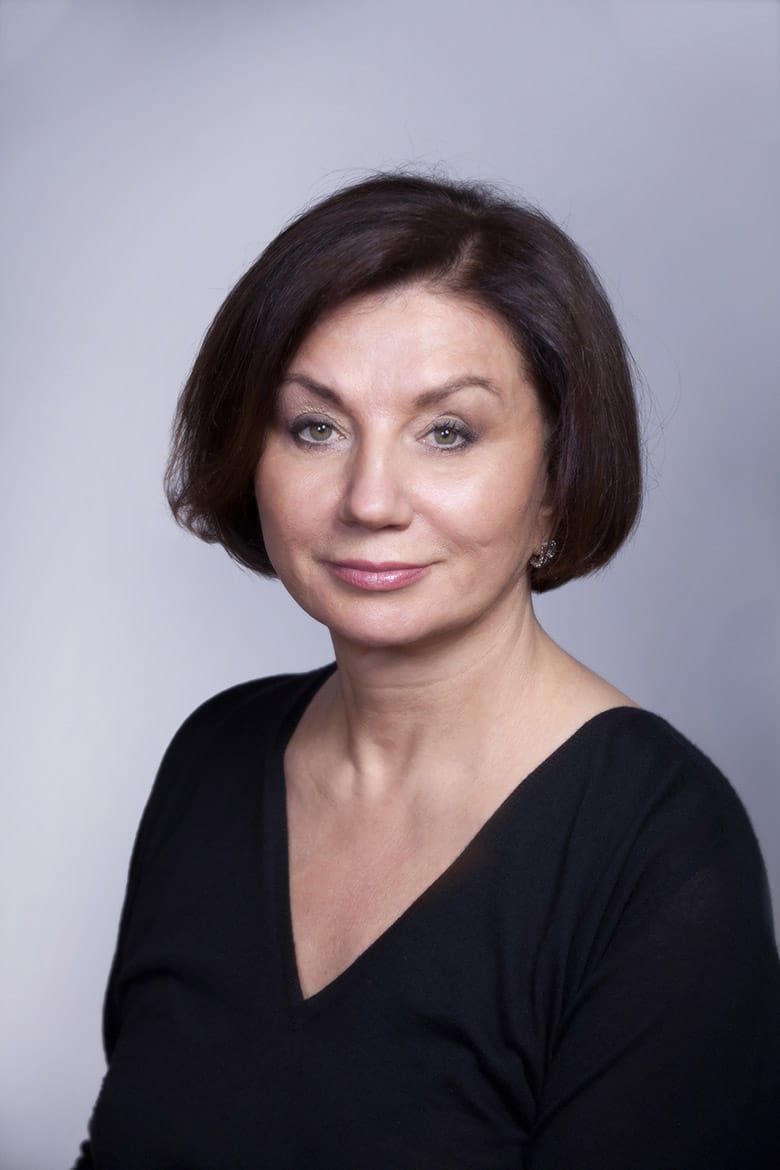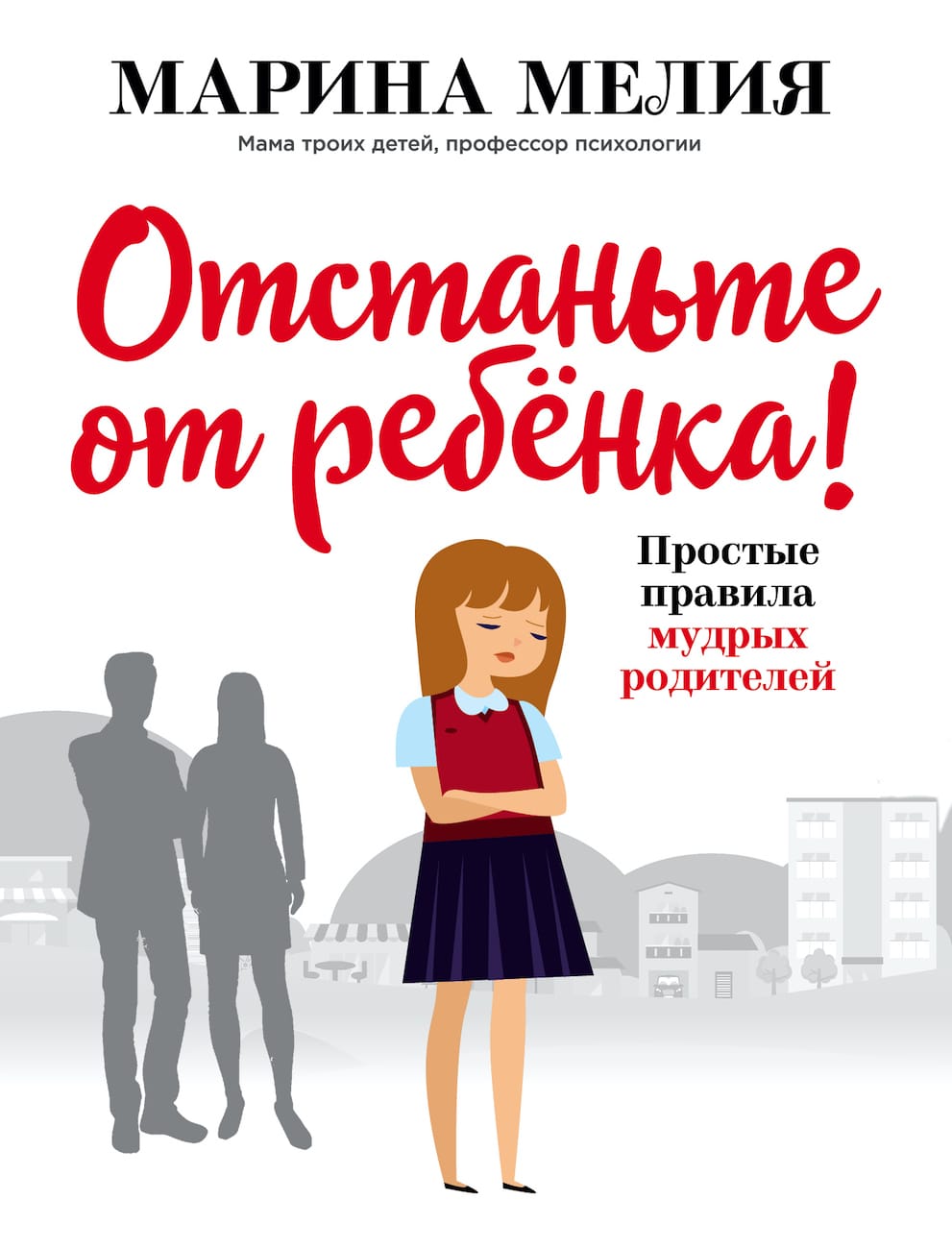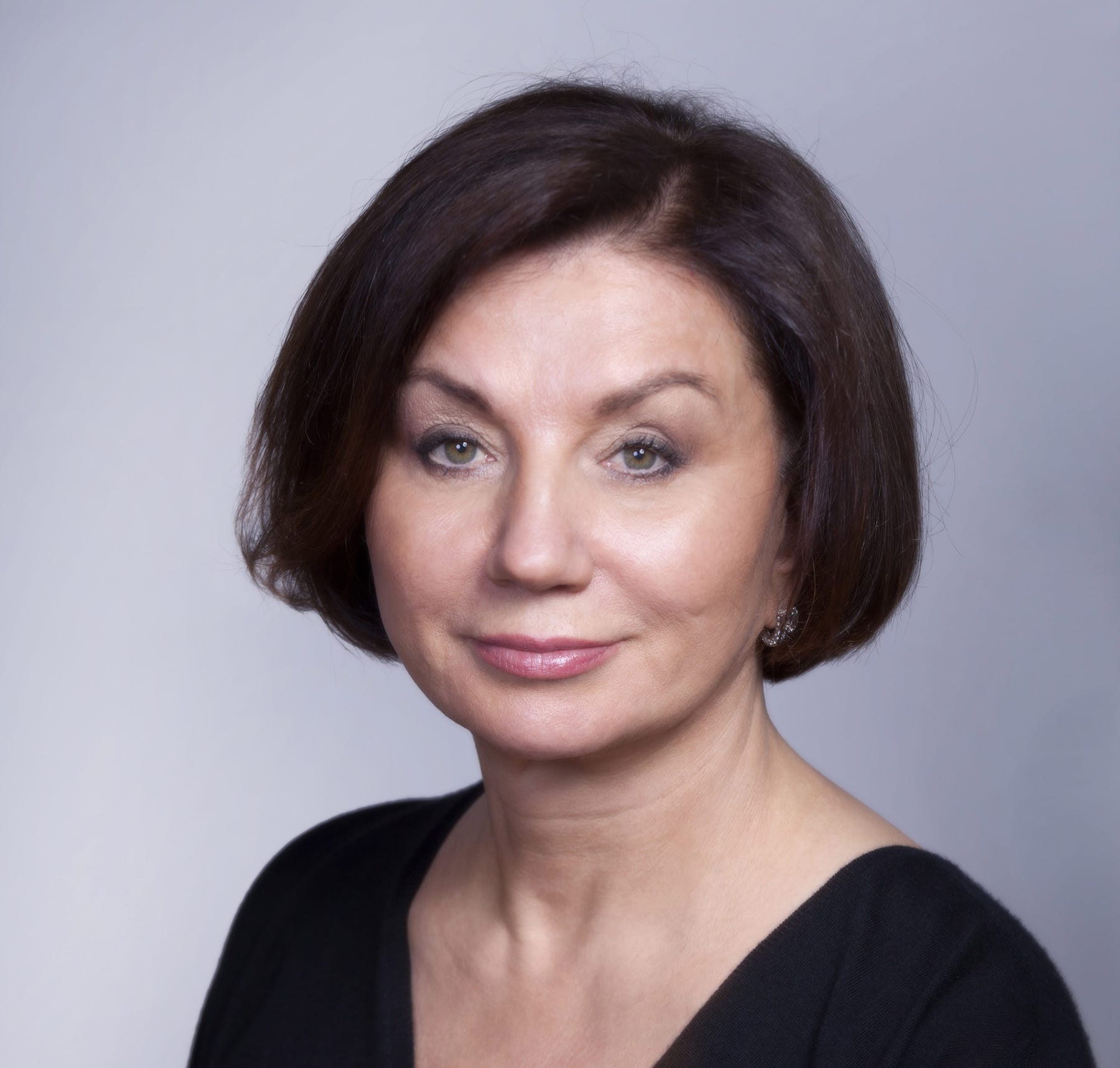Beautiful Lifestyle sat down with Maria Melia to talk about her new book “Leave your Kids Alone: Simple Rules of Wise Parents” and how to bring up your children when all of the time is spent on business.
Marina Melia is a professor of psychology, founder of MM Class consulting company, consulting coach for Russia’s top entrepreneurs, and USSR master of cycling and ski sports. Marina Melia is the best-selling author of “Business Is Psychology: Modern Businessman’s Psychological Coordinates”, “How to Make Your Strength Stronger: Coaching”, “Success Is a Personal Matter: How Not to Get Lost in the Modern World”, and “Complex Matters Explained Simply”.
Marina Melia is a mother of three. Based on her personal and professional experience she wrote two books on bringing up children: “The Main Secret of the First Year of Life” and “Our Poor Rich Children”. The third book of the series, “Leave Your Kids Alone! Simple Rules of Wise Parents”, has been recently published.
Marina sat down with the editor of our “Psychology” section, Anna Sarmatina, to talk about the challenges of bringing up children in wealthy families and charity.
– Marina, thank you for letting us interview you! Could you please tell us how you got into psychology? You used to go to a medical school and were ready to become a doctor, is that correct?
– I first started getting familiar with medicine back when I was 15. To gather up some experience prior to entering the university I started working at the serious patient department of City Hospital 81 in Moscow as a nurse. Back then I realised that medication and appropriate treatment are essential but psychological behaviour patterns help just as much. Despite working on weekends and night shifts I was popular among the patients. One of the bedridden women once said ‘Marina is here, so I’ll survive’.
Then I went to Pirogov Medical Institute and got my master badge in cycling. Sport psychology was in its early stages of development at the Central Institute of Physical Education where I got my second degree. It was home to renowned professors and great professionals. This way my life became strongly tied to sport psychology. I taught this newly formed subject and worked with Soviet teams. I was the first to teach future sport psychologists and launch a dedicated department in the USSR.
– Coaching has developed on the basis of sport psychology, hasn’t it?
– It wasn’t referred to as coaching back then although it used the same mechanism of aiming for a better result. A true athlete should aspire for more, and the coach helps them to do so, while the psychologist helps the coach.
I have a book titled “How to Make Strength Stronger: Coaching”. My method is based on the fact that people are subconsciously aware of their problems but not always realise how deep the matter goes or how to solve these issues. I aim at helping people feel the strength that will help them deal with the hardship, set forth and accomplish new tasks. Talking to a consultant the client gets better at understanding themselves and getting even with their unique features which may seem like drawbacks at the start and ultimately achieving more.
– The books you’ve published are bestsellers. “Business Is Psychology” has been republished 25 times. “Our Poor Rich Children” got out in 2017. How did you come up with the idea of writing it?
– I focus primarily on the people’s needs. Back when I needed to understand the patterns of entrepreneurial behaviour “Business Is Psychology” was born. Then my clients realised they wanted to self-analyse and answer questions like ‘What am I?’ ‘What do I live for?’ and ‘What do I aim for?’ That’s how I came up with “How to Make Your Strength Stronger: Coaching”, “Success Is a Personal Matter” and “Complex Matters Explained Simply”.
Time passed and my clients realised their children had grown up and those turned out different from what their parents had wanted them to be. The kids had no real desires, they did not want to start any business, instead they wanted to party and enjoy themselves. Where did this come from? How not to make any irreversible errors in the process of educating children?
Some of my clients are millionaires and even billionaires. They come to me to ask on how to find a CEO so that they could step aside. And we find the solution in a matter of minutes. The rest of the time we dedicate to their children… I first wrote “The Secret of the First Year of Life”. I realised that many problems stem from the fact that starting from the very early days parents trust their children to nannies who work in shifts. A strong affection, the main thing that is supposed to form during the first year of life, fails to form. Later on a more overwhelming work came forward, “Our Poor Rich Children”. My newest book “Leave Your Kids Alone! Simple Rules of Wise Parents” is scheduled to be presented at Moscow’s international book fair in September. The first book of the series helps understand children’s needs, while the second one describes negative factors that influence the parents. The third one talks about more personal questions like how to build boundaries, how to give freedom to your child, how to counteract bullying at school, and how to steer them away from contemplating suicide. The main thing I want to get through is: we the parents are raising the next generation and raise ourselves at the same time.

– Coming back to “Our Poor Rich Children”, why are our children poor?
– They are rich because they have all of their material needs catered for, and more often than not they have more than they need. Take a look around their rooms: you’re bound to see clothes they’ve never worn, toys they’ve never played with and things like this. Fully formed personalities are not really affected by wealth while children are very much affected by it. Naturally, parents make efforts to make their beloved offspring happy: they take them to expensive malls, hire personal coaches, and squander money on them. However, the child still fails to get proper soul connection and love. Parents’ attention is replaced with gifts. In this regard the children are in fact poor.
– It turns out one should start from themselves. However, it might be hard to change an adult person…
– People may start developing only when they want it. Every time I hear parents complain about their children I stop them right away. You can’t achieve anything by affecting people directly. One needs to focus on themselves instead. Fi we set rules for the family, do we adhere to them? Let there be few rules and limitations, but one has to be consistent. For instance, if a boy wastes all of his pocket money allowance, he doesn’t get any extra money. However, more often than not a kind mom tops up her son’s card every time he asks her to.
There should be freedom, and there should be boundaries. Parents shouldn’t set a strict schedule for the kids. Do we want to raise a leader who would be able to make decisions and create? Then why do we put him into the car and drive him from one class to another? Does he then have any time left to think, fantasize, or dream?
– How do we find the balance?
– Kids need to have some time for themselves free of any occupation, even boring time, if you will. We also need time to talk to the children. This is mandatory! The rest of the time might be dedicated to, let’s say, three classes: a creative one, an intellectual one, and an athletic one. This way we are more likely to find out what they really like.
– How should one explain the refusal to give the child what they really want? It’s more or less clear if the family cannot afford it and says ‘we have no money for this’ or ‘wait till we get the salary’. How should one put it to an almost adult person who realizes there is money for their needs?
– It is somehow an assumption that children need to be explained everything since the very first days ‘you’ve got to because reasons’. Truth is, certain things should not be explained. The question ‘why’ is normally replied to with ‘because’. Because we don’t do this sort of thing in our family. One of my clients was worried about explaining why her child had no father. ‘Because this is what our family is like’ is the best explanation. The world is not homogenous.
– Have you seen examples of parents openly telling their kids to ‘get a summer job and earn your first pennies’?
– I have, but not many. It is quite exotic so far.
– Why does it happen?
– Truth is, there have not been more than two generations of wealthy families. They were taught to struggle through a low income and count the days till the payday. However, they were never taught to deal with wealth. I’ve always told my children ‘Picture your house burning down. What do you have left? Your health, your skills, and the knowledge you got. You will still have your relatives you talk to, your friends, a motivation, and a desire to move forward. This is your true capital’.
We will eventually come to the realities of wealthy Western families: a calm attitude to luxury, and children’s involvement in charity from an early age. In the situation described sending kids ‘to get a summer job’ would not look realistic. Even though a month-long work as a waiter or a shop assistant would help the kids get some very important social skills.

– How should one teach the importance of volunteering?
– It depends on the parents. Should the child hear their father say ‘I’m going to a charity foundation because…’ or ‘I need to help…’ they will learn about it. The way we treat people of other ethnicities, creeds, and material state are perceived by children from an early age. The best way to teach people to be kind and charitable is real help including charity donations. You may take your child to an event, hospital, or a retirement home. If this is regular in the family, it will be for the children as well.
– What inspires you? How do you find strength and what helps you?
– It’s a combination of three elements: ‘I want’, ‘I can’, and ‘I must’ which I call ‘the magic triangle’. I want to pursue this as I take interest in it; I can do it as I can spend an hour doing what others wasted years on, and I must do it as people need me. Sadly, I cannot consult everyone, and this is why I write books.
– Marina, you transfer your book-selling earnings to the “Dom s mayakom” (“Building with a lighthouse”) of which you are a benefactor. Please say a few words about the foundation. How did it come about and what does it mean for you?
The foundation came about when my son Alexey came home with a girl with whom he had volunteered at a children’s hospital, Lidia Moniava. Now he works at the Medical Pedagogic Centre. Recently he published a great book titled “The World of Autism: 16 Superheroes”. Lidia had a dream of founding a children’s hospice. I witnessed her starting it from scratch. Becoming a benefactor for the foundation was the next logical step. I have three kids, and I believe there is nothing more terrifying than knowing that your child has an untreatable disease. It is even worse to realise you cannot do anything to help it.
– Do these kids stay at the hospice or at home?
– We do our best to let them stay at home. The worst thing is when a child is put into intensive care, and they become immovable. Back at home they are around their siblings and parents. We now have an inpatient facility with 15 wards. Last days are the hardest ones, so it is better for the patient to stay away from home. Doctors, nurses, nannies, psychologists, game therapists, and coordinators are always around them. This more of a palliative care as opposed to a real treatment. There are many ways of relieving the pain and make families’ life slightly better. We hold many events: we take the patients to river journeys, summer camps, and get hairdressers for their mothers. Should the kids want to see a star perform for them, we invite them. And they come over.
We are currently holding an initiative called “Children Instead of Flowers” where we encourage families to buy a single bouquet per class and donate the rest of the money to charity. Last year we raised 20 million Roubles. This is a nationwide initiative and a great effort.
Why do I believe the aid should not be directed? You may come to a family and give them some money but that would not always yield the desired result. The necessary aid cannot always be arranged by a single person. Medication, nappies, drop bottles, artificial lungs, wheelchairs, and many other materials are required. It is more effective to keep a family provided for by a foundation.
– How one can help the foundation?
– There can be any sort of aid, and anything helps. Our website has a list of things we need. The foundation provides an opportunity to make good deeds. We need regular donations, even if they are small. Picture many people making small but regular donations.
/ ИНН/КПП 9701106080\770101001
р/с № 40703810438000009242
в ПАО «Сбербанк России» г. Москва
БИК 044525225
к/с 30101810400000000225 /






